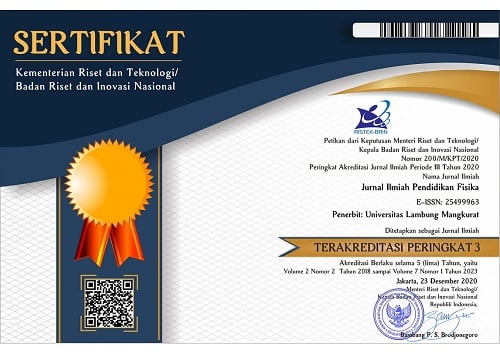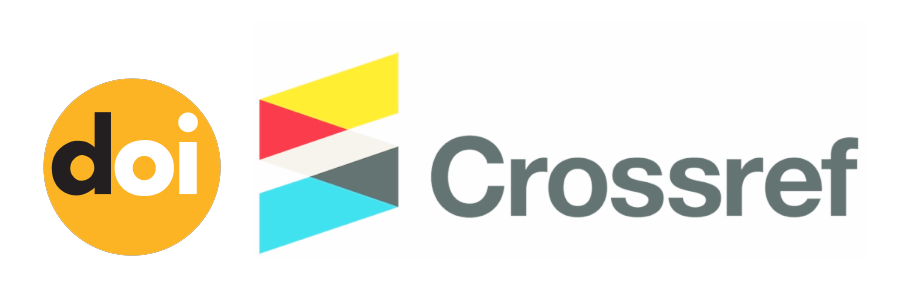Profitable Consideration of Education for Sustainability Development (ESD) above a Time: Bibliometric Analysis
Abstract
The objective of this study is to provide a concise overview of research on education for sustainable development, focusing on scientific production, prominent researchers, nations involved, and research topics. An analysis of the scholarly output on the topic of education for sustainability development was conducted using bibliometric methods, focusing on publications published from 2013 to 2023. A total of 19,801 articles were retrieved from Scopus databases. Collecting data was finished, and the data was stored in two specific file formats, namely *.ris and *.csv. The *.ris format serves as the data mapping format in the R Studio and VOSviewer applications, while the *.csv format is utilized for data analysis in Ms. Excel. These papers were published in various publications related to sustainability, social sciences, engineering, and scientific education. The primary findings indicate that the quantity of articles about education for sustainability development is reasonably consistent from 2013 to 2023. Co-authorship relationships primarily involve researchers from the same nation. Furthermore, a change in the research priorities was noted. Prior research has been extensively conducted in various fields, including sustainability, social sciences, engineering, science education, and others. A recent study has highlighted the significance of curriculum and curriculum development. The research implication is bibliometric analysis, which can help identify research trends related to education for sustainability (ESD). This may include the latest research, topic focus, and recent developments in the field.
Profitable Consideration of Education for Sustainability Development (ESD) above a Time: Bibliometric Analysis
Keywords
Full Text:
PDFReferences
Abdeen, N. S. A. (2020). Integration of sustainability strategies in architectural education towards the achievement of the comprehensive quality control. Journal of Engineering Research, 167, 53–73. Scopus. https://doi.org/10.21608/erj.2020.140826
Abd-Mutalib, H., Muhammad Jamil, C. Z., Mohamed, R., & Ismail, S. N. A. (2023). The determinants of environmental knowledge sharing behaviour among accounting educators: A modified theory of planned behaviour. International Journal of Sustainability in Higher Education. https://doi.org/10.1108/IJSHE-02-2022-0053
Abdullah, N., Halim, L., & Zakaria, E. (2014). VStops: A thinking strategy and visual representation approach in mathematical word problem solving toward enhancing STEM literacy. Eurasia Journal of Mathematics, Science and Technology Education, 10(3), 165–174. https://doi.org/10.12973/eurasia.2014.1073a
Adler, I., Zion, M., & Mevarech, Z. R. (2016). The effect of explicit environmentally oriented metacognitive guidance and peer collaboration on students’ expressions of environmental literacy. Journal of Research in Science Teaching, 53(4), 620–663. https://doi.org/10.1002/tea.21272
Agirreazkuenaga, L. (2019). Embedding sustainable development goals in education. Teachers’ perspective about education for sustainability in the Basque Autonomous Community. Sustainability (Switzerland), 11(5). https://doi.org/10.3390/su10021496
Ahmed, S. A. M., Zhang, W., Ma, H., & Feng, Z. (2023). Professional development for STEM educators: A bibliometric analysis of the recent progress. Review of Education, 11(1). https://doi.org/10.1002/rev3.3392
Alan, B., Zengin, F. K., & Kececi, G. (2023). Effects of science, technology, engineering, and mathematics education using algodoo to prospective science teachers’ scientific process and education orientation skills. Journal of Education, 203(3), 651–665. https://doi.org/10.1177/00220574211044542
Alm, C. O., & Bailey, R. (2021). Transitioning from teaching to mentoring: Supporting Students to adopt mentee roles. Journal for STEM Education Research, 4(1), 95–114. https://doi.org/10.1007/s41979-020-00045-9
Anabousy, A., & Daher, W. (2022). Pre-service teachers’ design of steam learning units: STEAM capabilities’ analysis. Journal of Technology and Science Education, 12(2), 529–546. https://doi.org/10.3926/jotse.1621
Assefa, S. G., & Rorissa, A. (2013). A bibliometric mapping of the structure of STEM education using co-word analysis. Journal of the American Society for Information Science and Technology, 64(12), 2513–2536. https://doi.org/10.1002/asi.22917
Baena-Morales, S., Ferriz-Valero, A., Campillo-Sánchez, J., & González-Víllora, S. (2021). Sustainability awareness of in-service physical education teachers. Education Sciences, 11(12). https://doi.org/10.3390/educsci11120798
Barak, M., & Assal, M. (2018). Robotics and STEM learning: Students’ achievements in assignments according to the P3 Task Taxonomy—Practice, problem solving, and projects. International Journal of Technology and Design Education, 28(1), 121–144. https://doi.org/10.1007/s10798-016-9385-9
Campbell, C., Hobbs, L., Xu, L., McKinnon, J., & Speldewinde, C. (2022). Girls in STEM: Addressing SDG 4 in context. Sustainability (Switzerland), 14(9). https://doi.org/10.3390/su14094897
Chen, Y., Chow, S. C. F., & So, W. W. M. (2022). School-STEM professional collaboration to diversify stereotypes and increase interest in STEM careers among primary school students. Asia Pacific Journal of Education, 42(3), 556–573. https://doi.org/10.1080/02188791.2020.1841604
Chiang, F.-K., Li, L., Cai, R. H., & Wang, S. (2020). Investigation of elementary-school students’ perception of engineering using drawing analysis. International Journal of Engineering Education 36(1 A), 241–255.
De Grandi, C., Smithline, Z. B., Reeves, P. M., Goetz, T. G., Barbour, N., Hairston, E., Guo, J., Muraina, F., Bervell, J. A., Chambers, L. M., Caines, H., Miranker, A. D., & Mochrie, S. G. J. (2021). STEM Climate survey developed through student–faculty collaboration. Teaching in Higher Education, 26(1), 65–80.
https://doi.org/10.1080/13562517.2019.1636219
Imara, K., & Altinay, F. (2021). Integrating education for sustainable development competencies in teacher education. Sustainability, 13(22), 12555.
Karaca, A., Kiliçoğlu, G., & Erbaş, S. (2023). Bibliometric analysis of scientific research on misconception conducted in the field of education. Anadolu Journal of Educational Sciences International, 13(2), 545-563.
Kulevicz, R. A., Porfirio, G. E. D. O., de Oliveira, O. S., Zavala Zavala, A. A., Silva, B. A. D., & Constantino, M. (2020). Influence of sustainability reports on social and environmental issues: bibliometric analysis and the word cloud approach. Environmental Reviews, 28(4), 380-386.
Kurtuluş, M. A., & TATAR, N. (2021). A bibliometrical analysis of the articles on environmental education published between 1973 and 2019. Journal of Education in Science Environment and Health, 7(3), 243-258.
Kurtuluş, M. A., & Tatar, N. (2021). An analysis of scientific articles on science misconceptions: a bibliometric research. Ilkogretim Online, 20(1).
Martin Gomez, S., & Bartolome Muñoz de Luna, A. (2023). Systemic review through bibliometric analysis with rstudio of skills learning to favor the employability of its graduates. Trends in Higher Education, 2(1), 101-122.
Maryanti, R., & Nandiyanto, A.B.D. (2021). Curriculum development in science education in vocational school. Online Submission, 1(3), 151-156.
Mochizuki, Y. (2019). Rethinking schooling for the 21st century: UNESCO-MGIEP’s Contribution to SDG 4.7. Sustainability (United States), 12(2), 88–92. https://doi.org/10.1089/sus.2019.29160
Nugraha, M. G., Kidman, G., & Tan, H. (2023). Pre-service teacher in STEM education: An integrative review and mapping of the Indonesian research literature. Eurasia Journal of Mathematics, Science and Technology Education, 19(5).
https://doi.org/10.29333/ejmste/13155
Olmos Antillón, G., Tunón, H., de Oliveira, D., Jones, M., Wallenbeck, A., Swanson, J., Blokhuis, H., & Keeling, L. (2021). Animal welfare and the united nations’ sustainable development goals—Broadening students’ perspectives. Sustainability (Switzerland), 13(6). https://doi.org/10.3390/su13063328
Satrianawati, S., & Fu, W. H. (2019). Education for sustainable development (ESD) in Indonesia: A Conceptual framework. International Journal of Education and Learning, 1(1), 42-49.
Shu, X., Wu, J., Wu, X., Liang, H., Cui, W., Wu, Y., & Qu, H. (2021). Dancingwords: exploring animated word clouds to tell stories. Journal of Visualization, 24, 85-100.
Tas, N., & Bolat, Y. İ. (2022). An Examination of the Studies on STEM in Education: A Bibliometric Mapping Analysis. International Journal of Technology in Education and Science, 6(3), 477-494.
Yuliani, S., & Hartanto, D. (2020). Quality education for sustainable development in Indonesia. In Charting a Sustainable Future of ASEAN in Business and Social Sciences: Proceedings of the 3ʳᵈ International Conference on the Future of ASEAN (ICoFA) 2019—Volume 1 (pp. 145-155). Springer Singapore.
DOI: https://doi.org/10.20527/jipf.v8i1.11336
Refbacks
- There are currently no refbacks.
Indexed by: Jurnal Ilmiah Pendidikan Fisika is licensed under a creative commons attribution-share alike 4.0 international license
Statistics Counter |
















